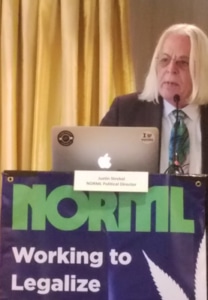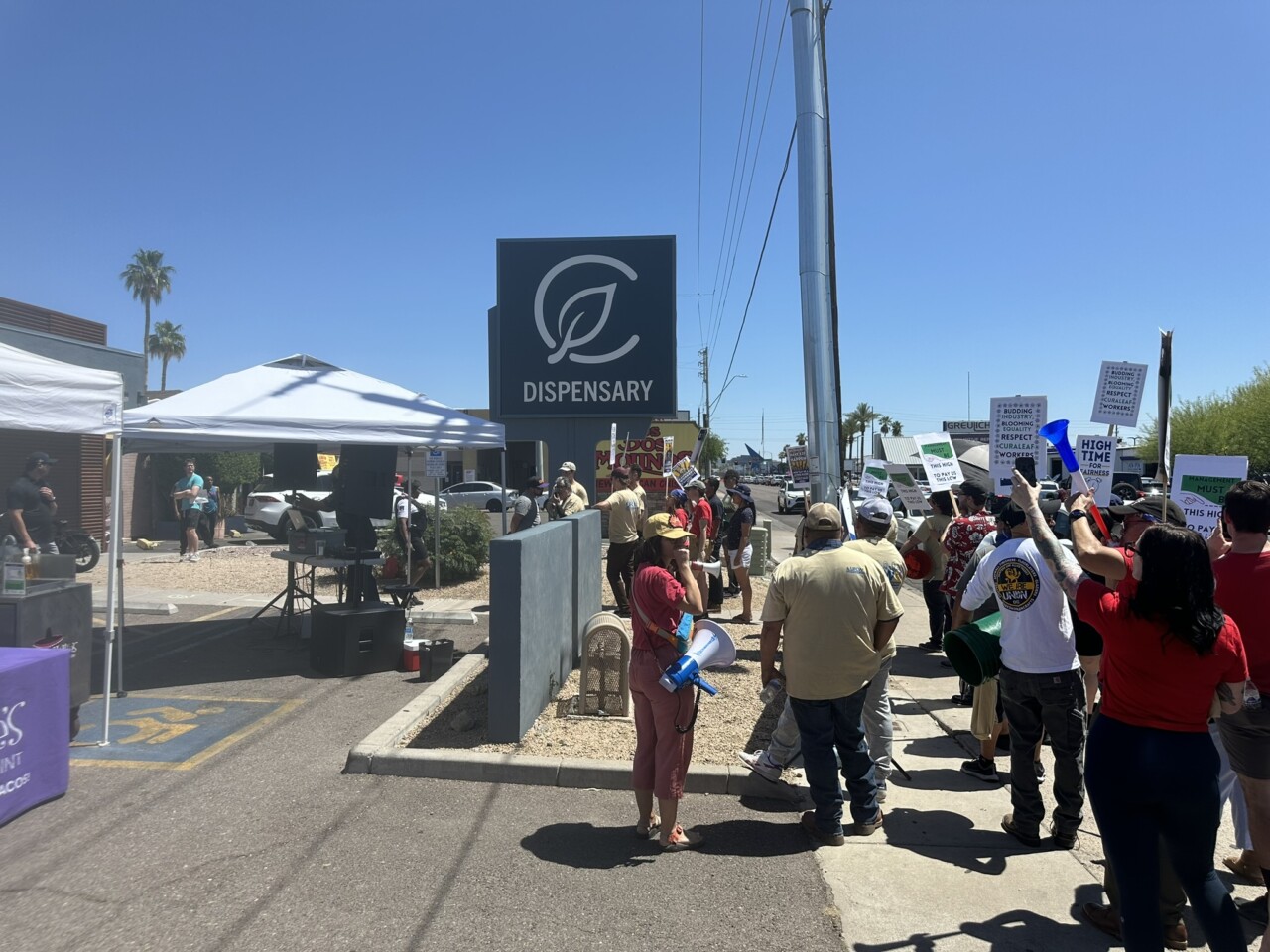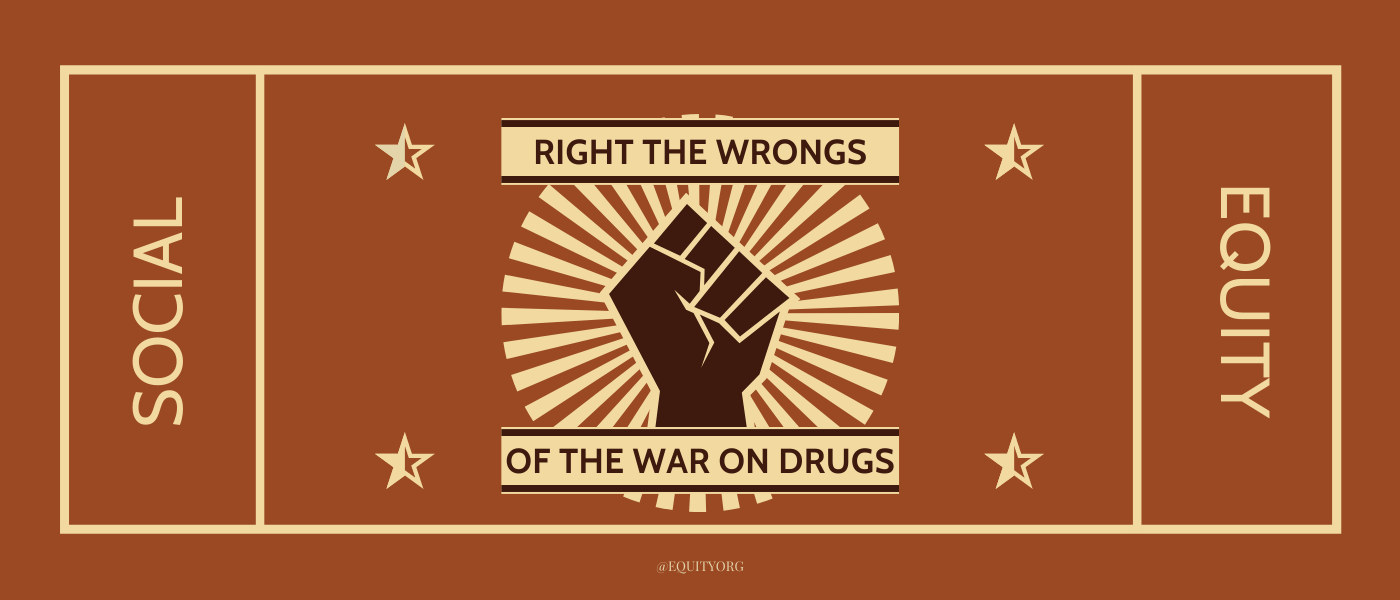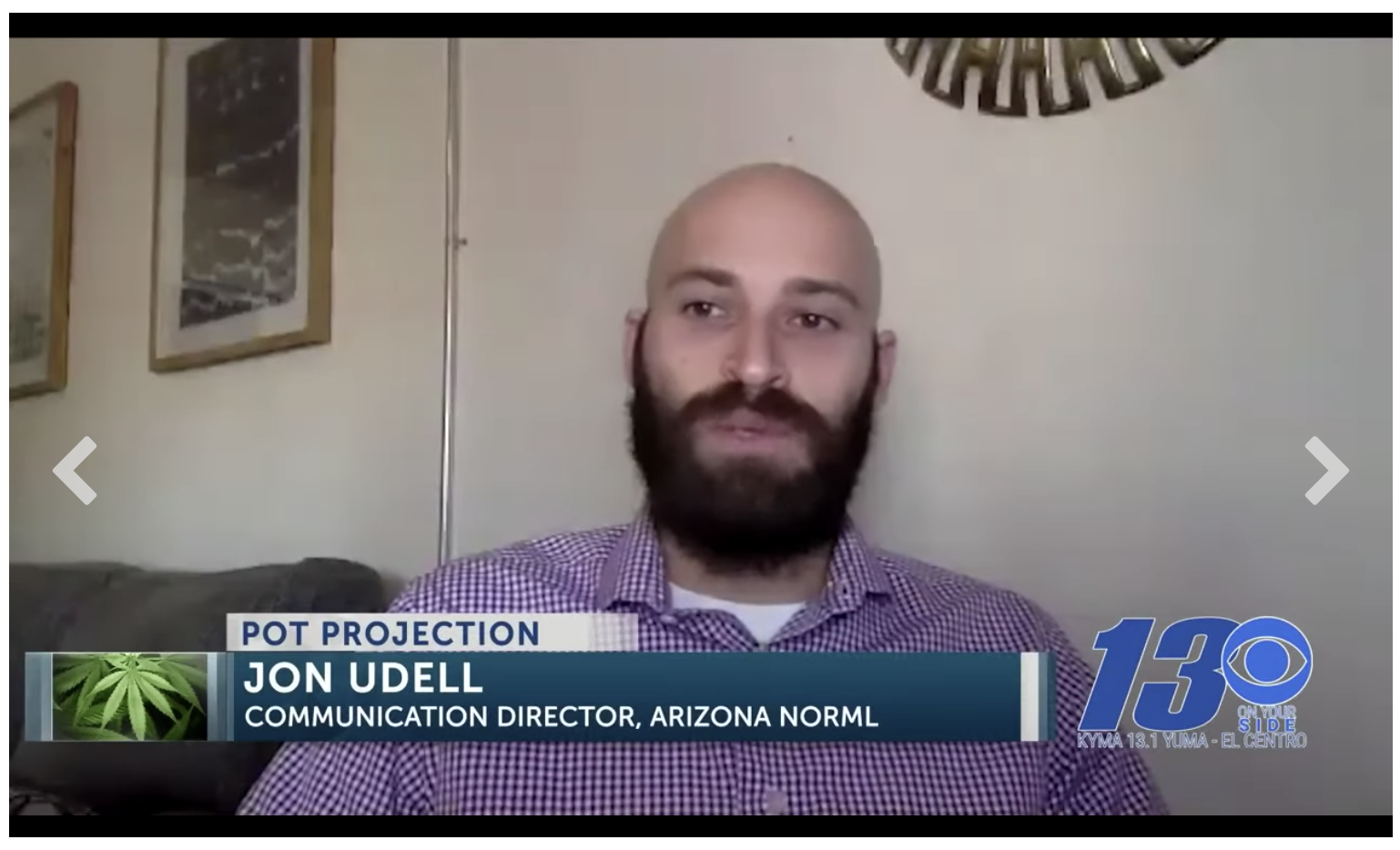NORML turns 50!
This year, the National Organization for the Reform of Marijuana Laws (NORML) achieves its 50th anniversary as the world’s leading cannabis reform organization. With over 170 chapters in the US and 11 other countries, NORML is easily one of the largest cannabis communities on the planet and rated the most trusted “brand” in cannabis. The website boasts a viewership of more than six million unique visitors each month.
Part of the anniversary celebration, their website will include a series of posts on the organization’s history by NORML founder, Keith Stroup, a man who has spent his entire adult “lifetime as America’s foremost marijuana smoker and legalization advocate.”

As a freshly minted lawyer who’d grown up in rural Illinois, Stroup gravitated to DC and initially worked with consumer advocate Ralph Nader before founding NORML with an initial grant from Playboy. Since NORML began in 1970, marijuana reforms include scores of states that reduced their criminal penalties, 34 states w medical marijuana programs and eleven states + DC that have legalized cannabis possession. But America STILL has a long way to go, Stroup is still the first to acknowledge. “Fifty years and counting as we continue to fight for a world in which marijuana smokers are treated fairly in all aspects of their lives.”
Arizona NORML thx Keith and all the millions of volunteers over the decades who have helped bring us this far.
West Virginia: Law Signed Permitting Patients Access to Herbal Cannabis Preparations
Thursday, 02 April 2020
Charleston, WV: Republican Gov. Jim Justice has signed legislation into law expanding the types of cannabis preparations that will soon be available to qualified medical cannabis patients. Senate Bill 339, which took effect upon its passage, expands the state’s definition of acceptable “forms of medical cannabis” to include “dry leaf or plant form.”
Review: Clinical Evidence Lacking in Support of CBD as an Anti-Viral Agent
Thursday, 02 April 2020
Varese, Italy: There is an absence of clinical data supporting the efficacy of CBD as an antiviral agent, according to a systematic literature review published in the journal Cannabis and Cannabinoid Research. A team of researchers from Italy and the United Kingdom performed a systematic review of peer-reviewed papers specific to the application of CBD in viral diseases. They reported “circumstantial evidence” suggesting that CBD may possess antiviral activity in a limited number of conditions, specifically in the treatment of hepatitis C and Karposi sarcoma. However, this preliminary finding was based solely upon the interpretation of preclinical data. By contrast, authors reported that there exists “no evidence from properly designed clinical trials to support the use of CBD for the treatment” of these or other conditions, such as the flu, West Nile virus, Ebola, or common cold viruses.
Polls: Americans Favor Designating Dispensaries as “Essential Services”
Thursday, 02 April 2020
Washington, DC: Americans mostly agree with states’ decisions to classify licensed medical cannabis facilities as “essential services” to the community – a designation that permits them to maintain uninterrupted retail operations during regional ‘stay-at-home’ orders. Nationwide polling data compiled by YouGov.com reported that 53 percent of respondents believe that medical marijuana dispensaries “should be considered essential services.” Support was strongest among self-identified Democrats (62 percent), but was significantly lower among Republicans (43 percent). Separate polling data compiled by CivicScience.com reported that a plurality of Americans consider medical cannabis dispensaries to be “essential” during the COVID-19 outbreak.
Analysis: Commercially Marketed CBD Products Often Tainted with THC
Thursday, 09 April 2020
Karlsruhe, Germany: An estimated one-quarter of CBD products commercially available in Germany contain elevated levels of THC, according to an analysis published in the journal F1000 Research. A team of German researchers assessed 67 commercially available hemp/CBD retail products. All of the products tested were marketed as either extracts or supplements. Researchers determined that 17 of the products analyzed tested positive for high levels of THC. “Claims of ‘THC-free’ used by most manufacturers … have to be treated as fraudulent or deceptive … information,” they concluded. Separate analyses of commercially available CBD products in the United States, the United Kingdom, and elsewhere have yielded similar results.
Colorado: Charlotte Figi Passes Away from COVID Complications
Thursday, 09 April 2020
Colorado Springs, CO: Charlotte Figi, who brought international attention to the use of CBD-dominant extracts as anti-seizure agents, has passed away due to complications related to the COVID-19 virus, according to multiple news reports. She was 13 years old. Charlotte Figi suffered from Dravet syndrome, a rare and highly debilitating form of childhood epilepsy. After conventional therapies failed to stabilize her condition, her parents eventually experimented with the use of cannabidiol-rich extracts. The administration of CBD extracts was associated with a dramatic reduction in Charlotte’s seizure frequency, and her case was eventually profiled in 2013 in a widely viewed CNN documentary hosted by Dr. Sanjay Gupta. Commenting on her untimely passing, NORML Deputy Director Paul Armentano said: “Charlotte Figi personalized this issue in a way that few others have, and her story humanized the medical cannabis fight to such a degree that many politicians could no longer ignore it. There is little doubt that Charlotte’s story emboldened lawmakers in several southern and mid-western states to finally move forward to recognize the need for CBD, and in some cases, whole-plant cannabis access.” In June 2018, the US Food and Drug Administration approved Epidiolex, a prescription medicine containing a standardized formulation of plant-derived cannabidiol for the explicit treatment of two rare forms of severe epilepsy: Lennox-Gastaut syndrome and Dravet syndrome.
NORML Formally Responds to Proposed Changes to DEA’s Marijuana Cultivation Rules
Thursday, 16 April 2020
Washington, DC: NORML has formally submitted comments to the US Federal Register opposing the Drug Enforcement Administration’s proposed rule changes governing the federal production and distribution of cannabis for clinical research purposes. Under existing regulations, the agency only licenses one facility — the University of Mississippi — to cultivate cannabis for use in FDA-approved clinical trials. Researchers have consistently criticized the poor quality of these plants, which they say fail to accurately reflect the varieties of marijuana commercially available in the United States. As a result, the DEA has been encouraged for over a decade to expand the pool of federally licensed cannabis producers — a move that the agency has largely resisted.
DEA: Marijuana Plant Seizures Spike, Arrests Fall in 2019
Thursday, 16 April 2020
Washington, DC: Federal law enforcement agents and their partners made fewer marijuana-related arrests in 2019, but seized a far greater number of plants than they did the year before, according to annual data compiled by US Drug Enforcement Administration. According to figures published in the DEA’s Domestic Cannabis Eradication/Suppression Statistical Report, the agency and its partners confiscated an estimated four million marijuana plants nationwide in 2019 – up from 2.8 million in 2018. By contrast, the total number of marijuana-related arrests reported by the DEA fell to 4,718 in 2019 – a decrease of 16 percent from 2018’s totals. It was the second-lowest number of arrests reported by the DEA in the past decade. In 2011, for instance, the DEA seized over 8.7 million marijuana plants and made over 8,500 annual arrests as part of its nationwide Eradication/Suppression activities.
Study: Regular Cannabis Use Associated with Increased Testosterone Levels
Thursday, 23 April 2020
Chicago, IL: Men who report having consumed cannabis in the past year possess elevated levels of testosterone as compared to non-users, according to data published in the World Journal of Urology. A team of investigators from the University of Chicago, the University of Miami, and John Hopkins University in Baltimore assessed the relationship between past-year cannabis use and testosterone levels in a cohort of self-reported cannabis consumers. Authors reported, “[M]en who reported smoking THC in the last year on average had a higher T (testosterone level) compared to those who did not report using THC.” Those subjects who reported using cannabis at least two or three times per month possessed the greatest differences compared to non-users. Differences in testosterone levels persisted even after researchers adjusted for potential confounders, including age, comorbidities, tobacco use, alcohol use, body mass index (BMI), exercise level, and race.
Review: Cannabis Smoke Exposure Is “Distinct from Tobacco,” Not Associated with COPD or Lung Cancer
Thursday, 23 April 2020
Dunedin, New Zealand: Cannabis exposure does not negatively impact the lungs in a manner consistent with tobacco, nor is it similarly linked to elevated rates of either COPD (chronic obstructive pulmonary disease) or lung cancer, according a literature review published in the journal Addiction. A team of New Zealand researchers reviewed clinical trial data assessing the impact of cannabis smoke exposure on the lungs. They report that “the effects of smoking cannabis on the lungs are distinct from tobacco.” The most common serious respiratory consequences from smoking tobacco are Chronic Obstructive Pulmonary Disease (COPD) and lung cancer. The authors reported that cannabis smoke exposure is associated with higher rates of cough, sputum production, and chronic bronchitis.







Leave A Comment
You must be logged in to post a comment.